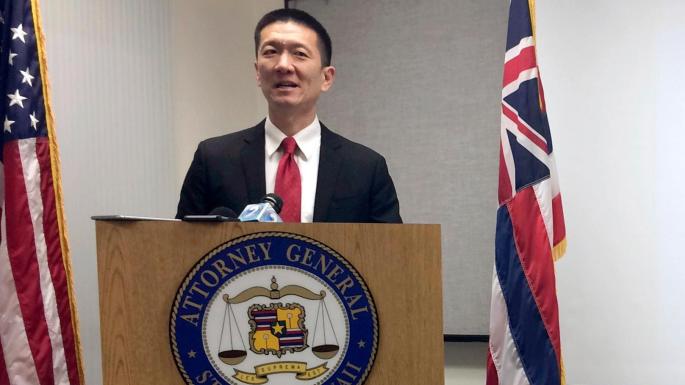
Hawaii moves to block Trump’s new travel ban
Hawaii has become the first US state to attempt to block President Trump’s new travel ban after its attorney-general filed a lawsuit against the revised executive order signed on Monday.
Mr Trump’s first travel ban caused chaos when it was introduced on January 27, a week after he was sworn in. Mass protests were held at airports and several district and federal courts moved to block its implementation.
The new order suspends refugee admissions for 120 days and halts the granting of new visas for travellers from Syria, Iran, Libya, Somalia, Yemen and Sudan. It does not include Iraqis, who were on the first list, legal permanent residents and valid visa holders.
The Hawaii state attorney-general, Doug Chin, said in a statement: “Nothing of substance has changed. There is the same blanket ban on entry from Muslim-majority countries (minus one). The courts did not tolerate the administration’s last attempt to hoodwink the judiciary and they should not countenance this one.”
The new travel ban was signed by the president with little fanfare at the beginning of the week. It is considered to have been watered down after Rex Tillerson,the secretary of state, and General James Mattis, the defence secretary, lobbied for Iraq to be left off the list.
The new order removes special treatment for religious minorities, previously considered to have benefited Christians. It also removes an indefinite ban on refugees from Syria, reducing it to 120 days, subject to review.
Jeff Sessions, the president’s attorney-general, said on Monday: “This executive order responsibly provides a needed pause so we can carefully review how we scrutinise people coming here from these countries of concern.”
Hawaii was one of the states to sue over the first travel ban. A judge ruled this morning that the state could revise its initial lawsuit. A hearing is set for March 15, the day before the new ban is to go into effect.
Ismail Elshikh, an American citizen from Egypt who is an imam at the Muslim Association of Hawaii and whose mother-in-law lives in Syria, has joining the state as a plaintiff in opposing the ban through the courts.
The state said in court papers filed on Tuesday that the order “is subjecting a portion of Hawaii’s population, including Dr Elshikh, his family, and members of his mosque, to discrimination and second-class treatment”.
